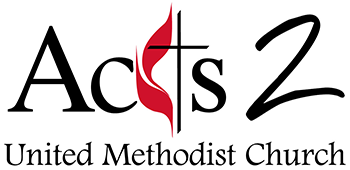When we go through events like a global pandemic, we desperately want things to be different than they are. Yet if we don’t learn to take life as it comes, we will always be waiting for our real lives to begin, and God’s desires for the world through us will go unrealized. In the stories of the Babylonian Exile and the early church, the Bible teaches us how to take life as it comes so that we can experience the abundant life that Jesus offers to all.
In the midst of a global pandemic, problems abound, and we often want out of those problems as quickly as possible. But God is not as concerned about getting us out of problems as in getting us through them. Problems bring us to the end of ourselves, and they teach us to rely on God, who uses those problems to help us grow. While it's uncomfortable, when life is disrupted, we can learn to embrace problems as gifts.
Blame feels good at first, but ruins us over time. It keeps us stuck in shame. But when we learn to own our stuff, Jesus helps us create a new life of freedom and joy.
If we don't leave our baggage behind, our past will become our present. But baggage we carry around does not go away until we deal with it. In week 4 of the Disrupted sermon series, Dr. Mark Foster shares how acknowledging, grieving, and forgiving can set us free to enjoy the freedom God has for us.
When we don't know what to do, we need wisdom—skill and knowledge applied to living. The Bible promises that if we lack knowledge, we can ask God. And Jesus promises that if we seek, we will find him.
The happiest people regularly surround themselves with spiritually mature, well-grounded people. God is sending supportive people into our lives to help us get to the next step. In this sermon, Dr. Mark Foster shares how to find and become the kind of friends who can help us find the way God is creating.
We need someone greater than ourselves to tell us what to do when we don’t know what to do. God made us, so God knows what we need. When we ask God for help, everything changes. Most of the time, God helps us through other people. God can be trusted to take care of us. God’s power and resources are not just for special people; they are for all people like you and me.
The first step in God making a way for you is for you to say yes to God. God promises when you say yes to God first, everything else you need will be provided for you.
When we say yes to God, a whole new world can open up.
At Easter, we point to the cross and say, not even a blood-stained murder scene is beyond the love and power of God to turn evil to good. In this Easter sermon, Dr. Mark Foster shares about the hope Jesus' resurrection brings.
On his journey toward the cross, Jesus' words and actions revealed who he truly is, and they exemplify for us the essential practices at the core of following him: prayer, reading scripture, serving others, giving, and sharing. Dr. Mark Foster shares what the final days of Jesus' life teach us about who he is and what it means to follow him.
What will you share in this crisis, faith or fear? When the story is told about how you led your family through this time, will it be a story you want told? Will it be a story where you shared your faith, or shrank in fear? We have the opportunity to share hope in the midst of crisis. In this sermon, Dr. Mark Foster shares how.

